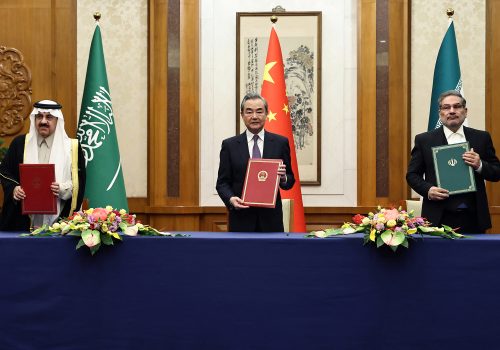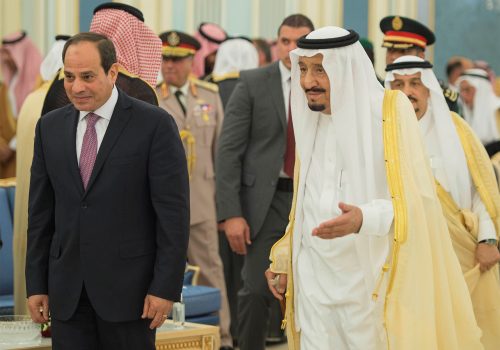Improving Gulf security: A framework to enhance air, missile, and maritime defenses
This report is the final product of the Scowcroft Middle East Security Initiative‘s Gulf Security Task Force, a team of experts whose US government experience includes senior roles at the Department of Defense, Department of State, White House, and Intelligence Community. The Task Force joined together to shape this new strategy, with an eye on sustainable success in protecting both US and allies in the Gulf. The views expressed in the report are those of the authors and not their respective institutions.
Looking at decades of US support and operations in the Gulf and recognizing a continued, arguably growing, air and maritime threat from Iran, the Atlantic Council Gulf Security Task Force developed a framework on how to best protect US and allies’ interests in this sensitive, always relevant region. The report provides US decision-makers with an updated, fact-based strategy for protecting its interests in the air and maritime domain from the Persian Gulf to the Red Sea, while ensuring Gulf partners’ ability to assume this responsibility, with the assistance and leadership of the United States.
In this capstone report, “Improving Gulf Security: A Framework to Enhance Air, Missile, and Maritime Defenses“, the Gulf Security Task Force brings together their cross-section of expertise to address the nature of the threats and provide practical policy solutions for the development of an integrated air, missile, and maritime defense in the Gulf, that provides long-term, reliable protection for the US and our partners’ security in the region.
Competing Security Interests in the Arab Gulf
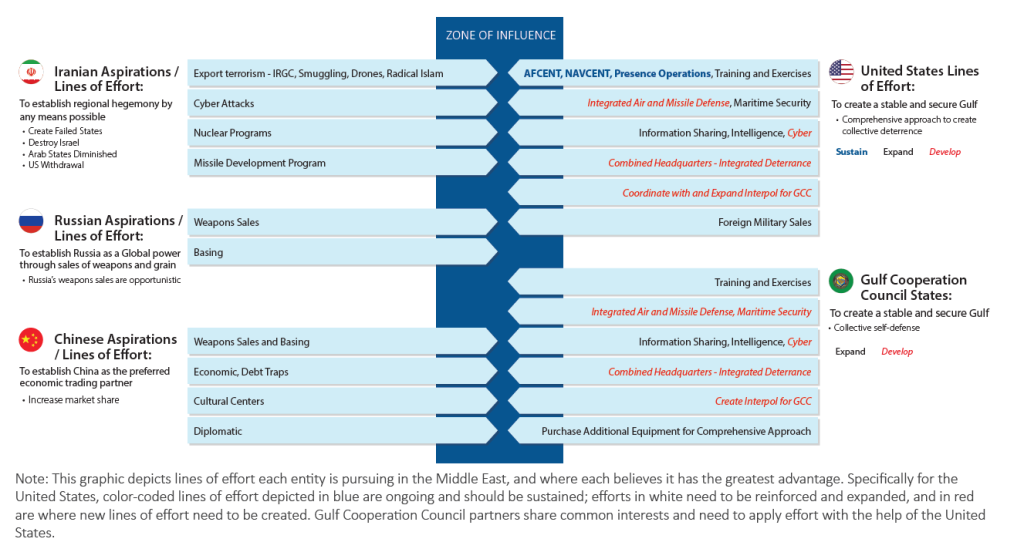
Authors

Michael S. Bell
Former Special Assistant to the President and Senior Director for Middle East Affairs, National Security Council
Dr. Mike Bell is the Executive Director of the Jenny Craig Institute for the Study of War and Democracy. Commissioned in Armor following graduation from the US Military Academy at West Point, he is a combat veteran, historian, and strategist who has served at every level from platoon through theater army, as well as with US Central Command, the Joint Staff, the West Point faculty, and the National Defense University. As a civilian faculty member at the National Defense University, he also served details to the Office of the Secretary of State and as a National Security Council Senior Director and Special Assistant to the President of the United States. His monograph on the role of the Chairman of the Joint Chiefs of Staff was published by the Strategic Studies Institute.

Clarke Cooper
Nonresident Senior Fellow, Scowcroft Middle East Security Initiative, Middle East Programs, Atlantic Council
Former Assistant Secretary of State for Political-Military Affairs
R. Clarke Cooper recently served as the assistant secretary for political-military affairs at the US Department of State from 2019 to 2021. During his tenure, Cooper implemented reforms to streamline arms export licensing and improve government support to the US defense industry. By enabling security partnerships and through advocacy for burden sharing to counter shared threats, Cooper continued his advocacy for performance measures across United Nations (UN) peacekeeping missions, women in active peacekeeping roles, and accountability measures for troop and police contributing countries. In 2021, Cooper was awarded the Superior Honor Award for interagency coordination and implementation of the security cooperation elements of the Abraham Accords.

Kirsten Fontenrose
Nonresident Senior Fellow, Scowcroft Middle East Security Initiative, Middle East Programs, Atlantic Council
Former Senior Director for the Gulf, National Security Council
Kirsten spent 2018 as Senior Director for the Gulf at the National Security Council, leading the development of U.S. policy toward nations of the GCC, Yemen, Egypt, and Jordan. Prior to this service at the White House, Kirsten spent a year in the private sector consulting on specialized projects in the national security space. Her interagency experience includes five years at the Department of State leading the Middle East and Africa team in the interagency Global Engagement Center. Prior to this, Kirsten worked with a field team studying foreign populations for the US Department of Defense Theater Special Operations Commands.
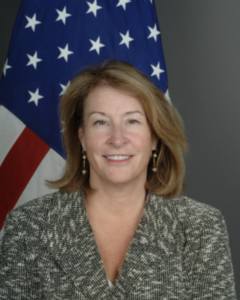
Greta Holtz
Chancellor, College of International Security Affairs National Defense University
Former US Charge d’Affaires in Qatar and former US Ambassador in Oman
Ambassador (Ret.) Greta C. Holtz enjoyed 35 years as a career diplomat with extensive experience in the Middle East region. She retired in April 2021 with the personal rank of Minister Counsellor. Ambassador Holtz served as Senior United States Coordinator for Operation Allies Refuge in Qatar from August – October 2021 and as Chargé d’affaires in Qatar from June 2020 until April 2021. She was Principal Deputy Assistant Secretary in the State Department’s Bureau of South and Central Asian Affairs, and she was the Senior Foreign Policy Advisor (POLAD) to the Commanding General of U.S. Special Operations Command (SOCOM) from 2017-2019. She served as the United States Ambassador to the Sultanate of Oman from 2012 to 2015 and was the Vice-Chancellor at National Defense University’s College of International Security Affairs from 2016 to 2017. Ambassador Holtz was Deputy Assistant Secretary for Public Diplomacy and Strategic Communication in the Bureau of Near Eastern Affairs, and she ran the United States Provincial Reconstruction teams in Iraq from 2009-2010.

Richard LeBaron
Nonresident Senior Fellow, Middle East programs, Atlantic Council Former US Ambassador to Kuwait
Ambassador (Ret.) Richard LeBaron is a career diplomat with over thirty years of experience abroad and in Washington. His most recent overseas posting was as deputy chief of mission at the US embassy in London from August 2007 to August 2010. Amb. LeBaron served as chargé d’affaires in London from February to August 2009. Previous to his assignment to London, Amb. LeBaron served as the US ambassador to Kuwait (2004 to 2007). From September 2001 to July 2004, Amb. LeBaron served as deputy chief of mission at the Embassy of the United States in Tel Aviv, Israel.

Fozzie Miller
Former Nonresident Senior Fellow, Middle East programs, Atlantic Council Former Commander, US Naval Forces Central Command/Combined Maritime Forces/US Fifth Fleet
In 2015, Vice Admiral (Ret.) John W. “Fozzie” Miller retired from the US Navy after serving as the Commander, US Naval Forces Central Command; Commander, Combined Maritime Forces; and Commander, US Fifth Fleet. Miller spent a considerable amount of his naval career focusing on the Middle East—beyond his role as Commander of the US Fifth Fleet, he also served as Deputy Commander to US Naval Forces Central Command/United States Fifth Fleet; Deputy Director, Strategy, Plans, and Policy (J5); and Chief of Staff of US Central Command. In 2015, Miller received the Navy Distinguished Service Medal.
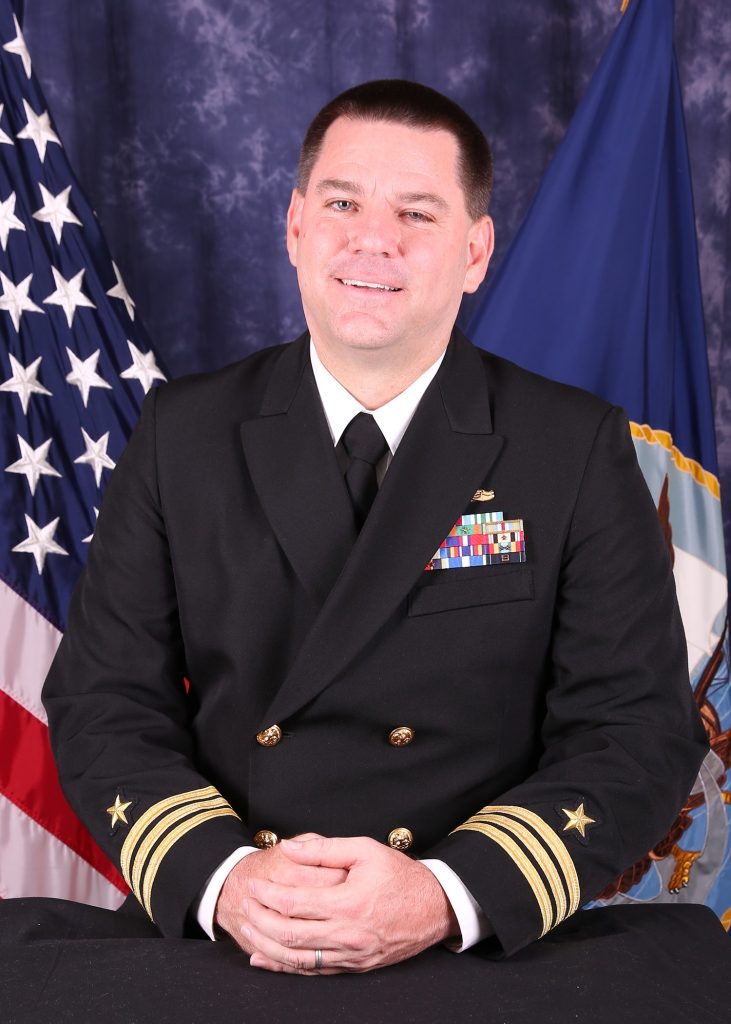
Daniel Vardiman
Senior US Navy Fellow, Scowcroft Center for Strategy and Security (2021-2022), Atlantic Council *
Commander Daniel Vardiman was the intelligence lead for Expeditionary Strike Group Two from August 2019 through July 2021. In this role, he also served as the acting information warfare commander; supported staff certification, contingency operations, and integration with the Marines; participated in exercises in Europe and off the East Coast of the United States; and assisted with defense support to civil authorities. For his lieutenant commander milestone tour, he was the intelligence lead for Amphibious Squadron Six from June 2014 through June 2016, and on the Bataan Amphibious Ready Group and Wasp Amphibious Ready Group deploying to the US Fifth and Sixth Fleet areas of responsibility.
* The opinions expressed are those of the author and do not reflect those of the U.S. Navy or Department of Defense.
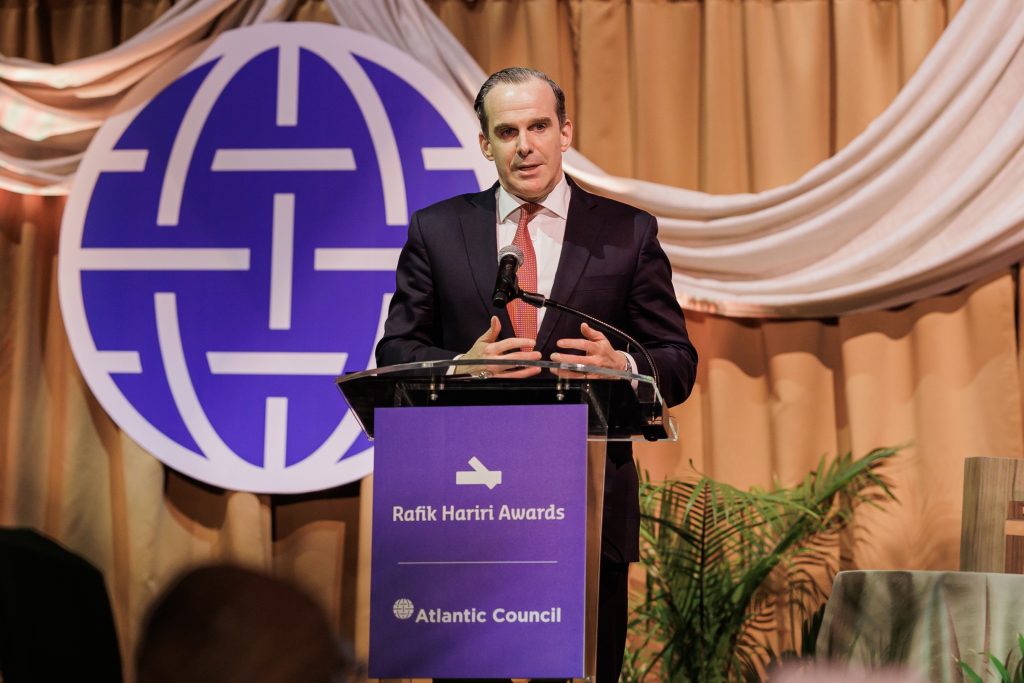
Brett McGurk sets out the ‘Biden doctrine’ for the Middle East
White House Coordinator for the Middle East and North Africa, Brett McGurk, delivered remarks in support of “enabling an integrated air and maritime defense architecture in the region, something long talked about, which is now happening through innovative partnerships and new technologies,” at the Atlantic Council’s inaugural Rafik Hariri Awards, celebrating the tenth anniversary of the Rafik Hariri Center for the Middle East, in Washington on February 14, 2023.
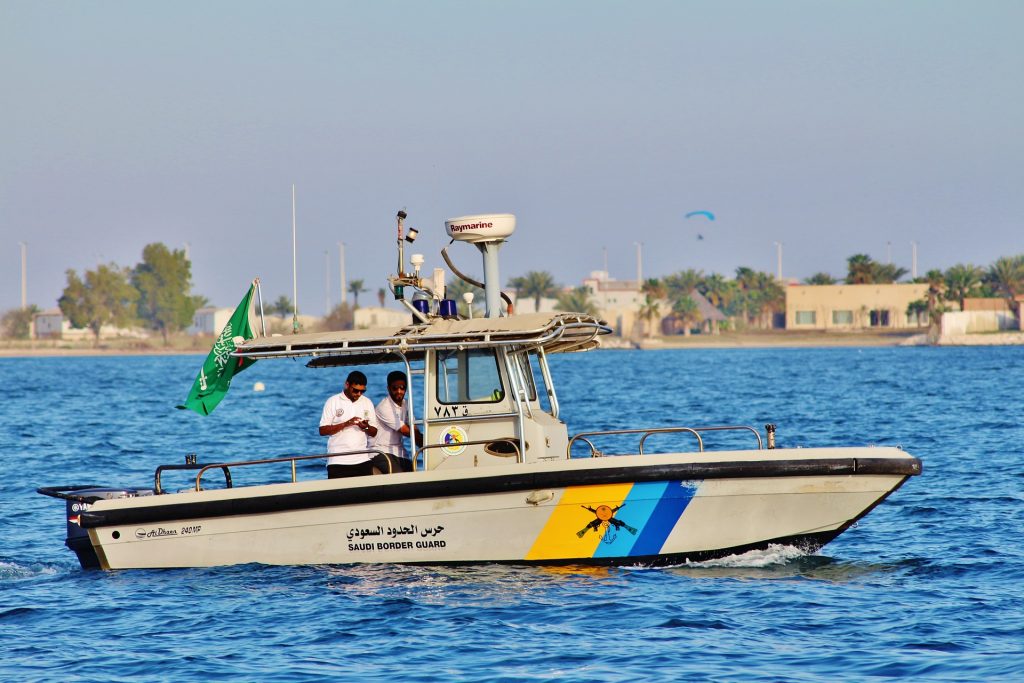
Scowcroft Middle East Security Initiative
The Atlantic Council’s work on Middle East security honors the legacy of Brent Scowcroft and his tireless efforts to build a new security architecture for the region. Our work in this area addresses the full range of security threats and challenges including the danger of interstate warfare, the role of terrorist groups and other nonstate actors, and the underlying security threats facing countries in the region.
Further reading
Fri, Mar 10, 2023
Why did China broker an Iran-Saudi detente?
Fast Thinking By
What does this move mean for one of the Middle East’s defining rivalries? How should the United States view China’s role in the breakthrough? Our experts dig beyond the diplomat-speak.
Thu, Mar 9, 2023
The US needs to reform security cooperation and arms transfer processes—not create new policies
New Atlanticist By R. Clarke Cooper
The Biden administration's new Conventional Arms Transfer (CAT) policy in late February is unnecessary and potentially more cumbersome than what's already on the books.
Mon, Feb 27, 2023
From Twitter spats to island disputes, Egypt and Saudi Arabia have a bone to pick with each other
MENASource By Shahira Amin
Cairo's relationship with its Gulf ally has become increasingly fractious in recent weeks after a Saudi official made clear that any future Gulf assistance ”will come with strings attached."
Image: The US Navy aircraft carrier USS Harry S. Truman transits the Suez Canal, Egypt towards the Mediterranean Sea in a photo released by the US Navy June 2, 2016. U.S. fighter jets on Friday launched strikes against Islamic State from the USS Harry S. Truman aircraft carrier, the U.S. Navy said, marking the first time a U.S. aircraft carrier targeted areas in the Middle East from the Mediterranean since the Iraq War began in 2003. U.S. Navy/Mass Communication Specialist 3rd Class Anthony Flynn/Handout via REUTERS ATTENTION EDITORS - THIS PICTURE WAS PROVIDED BY A THIRD PARTY. FOR EDITORIAL USE ONLY
